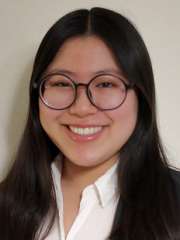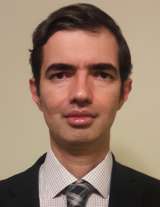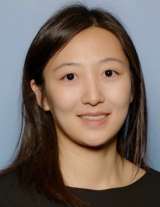Current Lab Members
The Cornea Genetics Laboratory is staffed by postdoctoral researchers, students and volunteers. Laboratory researchers originate from different parts of the world and represent both vision-specific and general cell biological disciplines. Their diverse backgrounds bring a broad scope of knowledge, perspectives, and methods to the laboratory’s research activities.

Anthony J. Aldave, MD
Laboratory Director and Principal Investigator
I am a board certified ophthalmologist who is recognized as an international authority on the corneal dystrophies. As a clinician-scientist, I maintain active research and clinical programs and serve as Chief of the Cornea and Uveitis Division at the Stein Eye Institute. Since I established the Cornea Genetics Laboratory at the Stein Eye Institute in 2002, the research focus on the Laboratory has been elucidation and characterization of the genetic basis of the corneal dystrophies. Over the last twenty years, our research has been supported by numerous intramural and extramural grants from the National Eye Institute, the US Department of Defense, the Eye Bank Association of America, Knights Templar Foundation, Research to Prevent Blindness and others. We have published original research articles on nearly all of the corneal dystrophies, much of it collaborative with colleagues at UCLA and around the world, in many high impact scientific journals.

Doug D. Chung, PhD
Assistant Project Scientist
As an assistant project scientist in the Cornea Genetics Laboratory, I manage the day-to-day operations of the Lab and implement a wide array of cellular, molecular, genetic, and bioinformatic techniques to elucidate the genetic and functional basis of various corneal dystrophies. My research contributions have led to the identification of the genetic basis of posterior polymorphous corneal dystrophy (PPCD) that is linked to chromosome 20 (PPCD1); the characterization of the functional impact of PPCD-associated ZEB1 mutations on protein localization, abundance, and regulatory functions; the discovery of the genetic basis of punctiform and polychromatic pre-Descemet corneal dystrophy, and the identification of novel mutations in epithelial recurrent erosion dystrophy, fleck corneal dystrophy, and Meesmann corneal dystrophy. My current projects include characterizing the impact of SLC4A11 mutations associated with congenital hereditary endothelial dystrophy (CHED) and Fuchs endothelial corneal dystrophy 4 (FECD4) on corneal endothelial cell function and viability; and studying the effect of oxidative stress on ex vivo corneal endothelial cells during cell expansion. My main long-term research interests involve developing a comprehensive understanding of the pathomechanisms associated with corneal dystrophies and the key regulatory pathways involved in the development and maintenance of healthy corneal tissue.

Michelle Duong
Undergraduate Student Researcher
I am a fourth-year Biology major at UCLA, with a strong interest in vision science. To this end, I am an executive board member of the Pre-Optometry Society at UCLA and a volunteer for the Clinical UCLA Health Sciences program with Preschool Vision Screenings and Vision In-School at Stein Eye Institute. Having intellectual interest coupled with my passion for people, I am pursuing a career in vision care. My current project in the Cornea Genetics Laboratory involves the sex dimorphism observed in Congenital Hereditary Endothelial Dystrophy (CHED), and the role of sex hormones in the cornea that creates this outcome.

Reza Ghaffari, MD
Health Sciences Clinical Instructor
As an ophthalmologist, my clinical and research focus is cornea and external ocular disease. My previous research has contributed to more than a dozen peer-reviewed publications in fields such as corneal imaging, outcomes of Boston keratoprosthesis (artificial cornea) implantation, and complications of cosmetic iris implants. My areas of research interest include outcomes of keratoprosthesis implantation and corneal transplantation. I am currently involved in a project investigating the outcomes of a novel prototype intrastromal keratoprosthesis device in rabbit eyes.

Wenlin Zhang, MD, PhD
Assistant Researcher
I am a passionate vision scientist with extensive experience in corneal endothelial biology and physiology. I am particularly interested in research topics related to or translatable to human diseases. In my previous research, I have dedicated my efforts in elucidating the function of SLC4A11 transporter and SLC4A11-associated corneal endothelial dystrophies in the context of corneal endothelial physiology and SLC4A11’s role in corneal endothelial ion and solute transport function in maintaining corneal transparency. Building on previous findings, my current focus is on elucidating the broad pathogenetic impact of SLC4A11 loss of function on corneal endothelium beyond ion transport, including observed differences in the phenotype of male and female Slc4a11-/- mice and infants and children with CHED. I am also very excited for the next phase of our work, which is centered around pre-clinical studies of AAV based gene therapy for congenital hereditary endothelial dystrophy (CHED).